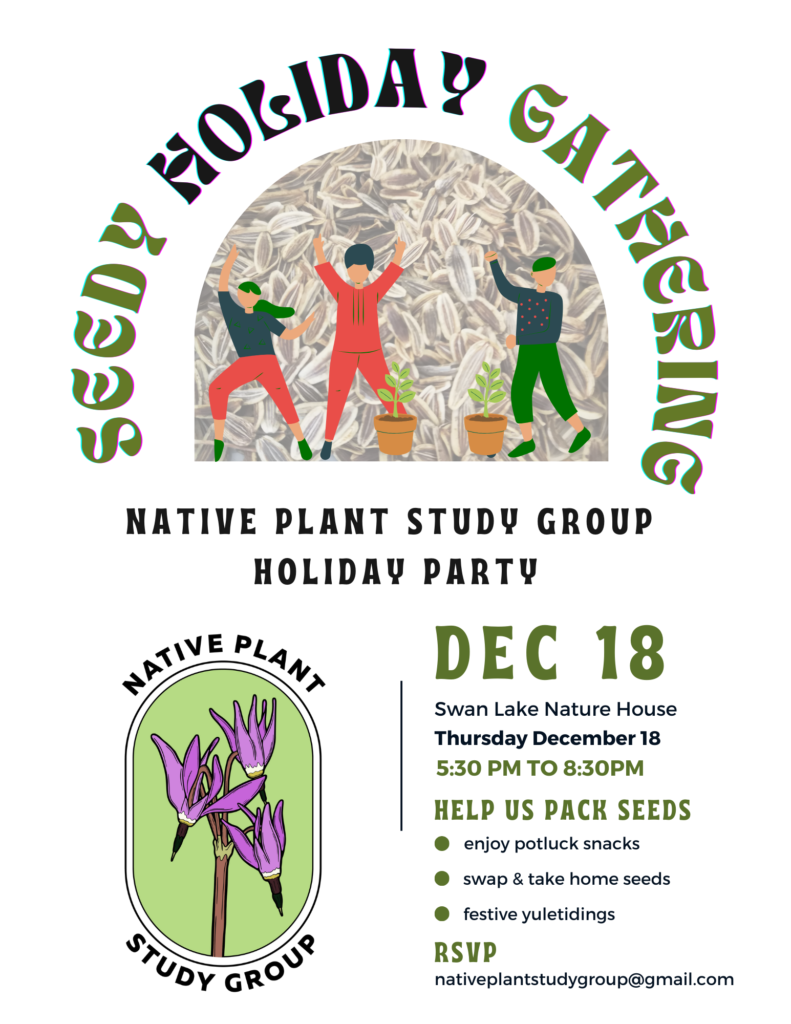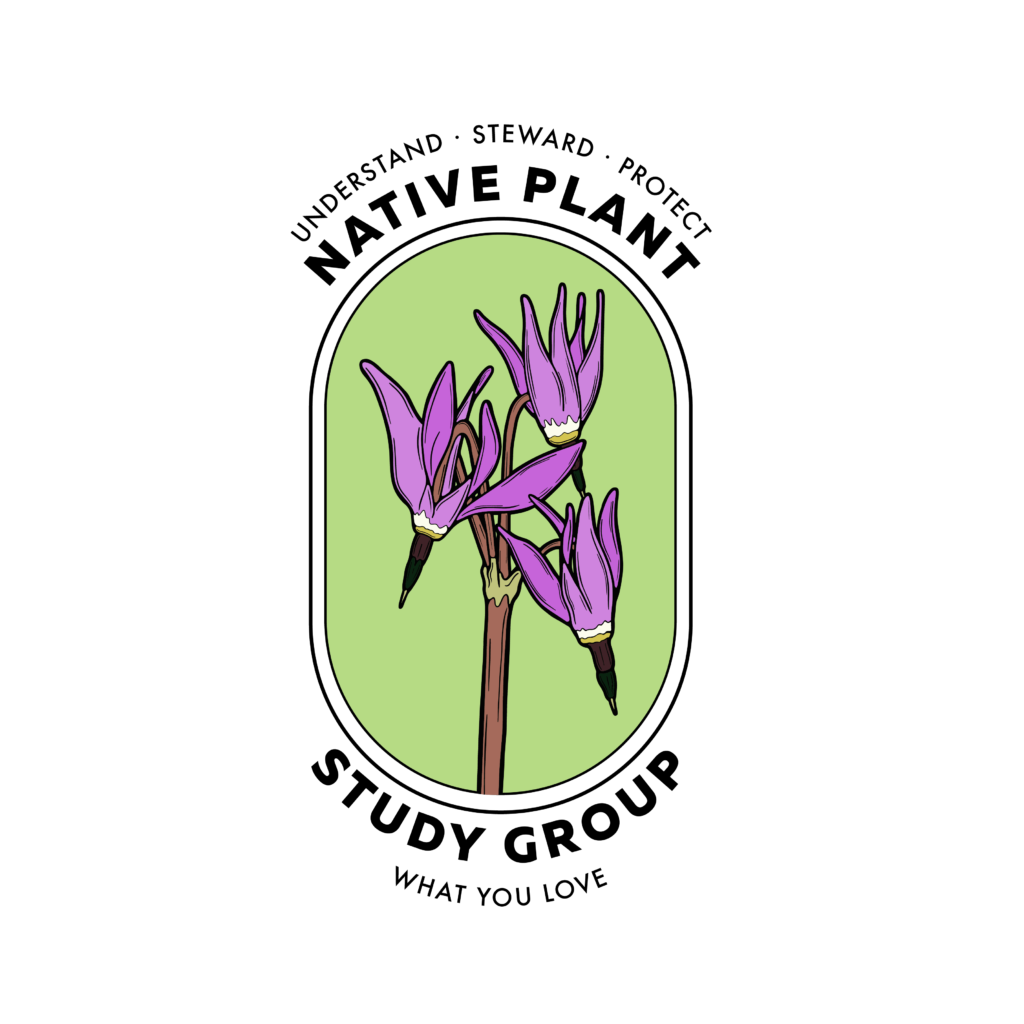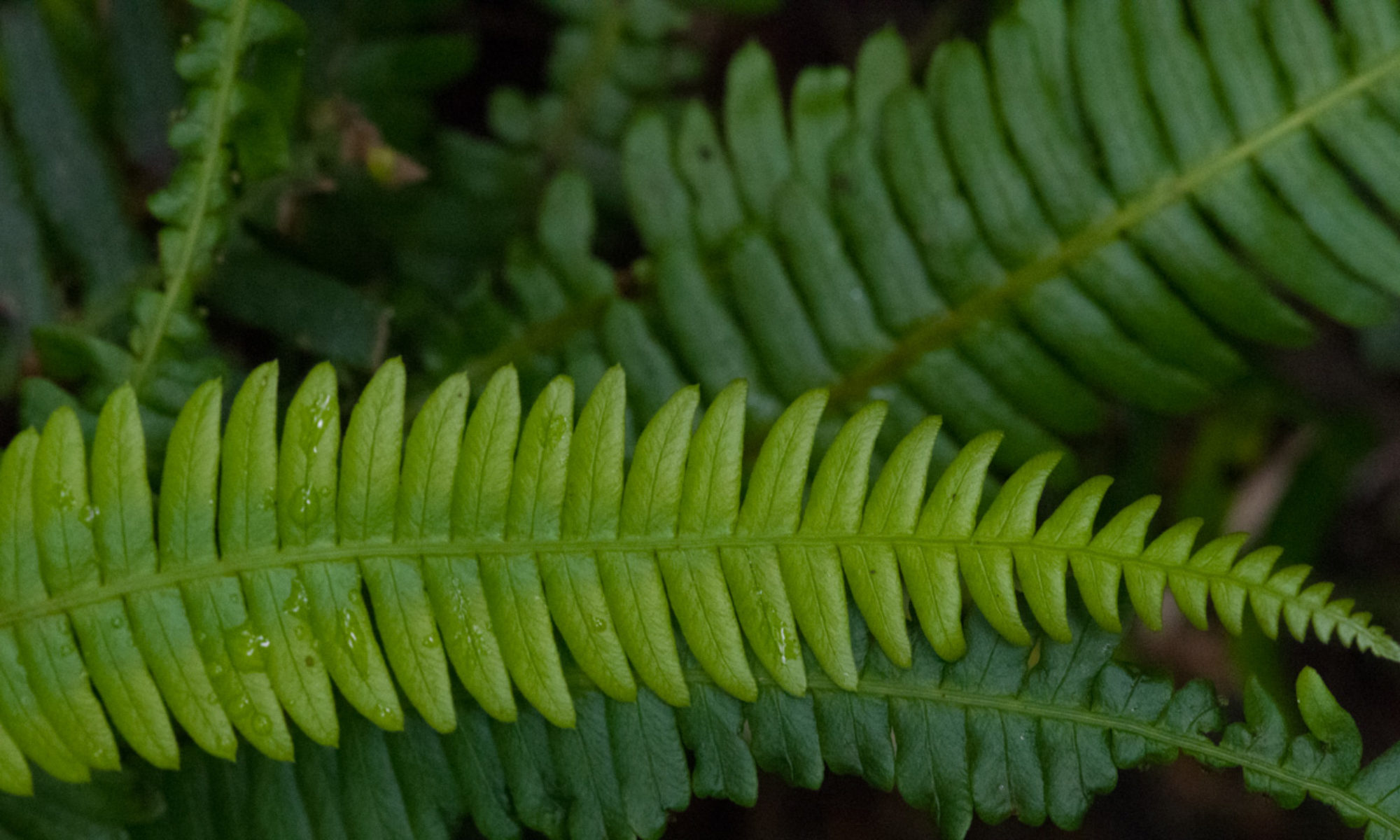Our Next NPSG Event is:

Thursday December 18th 2025 at 5:30pm-8:30pm
You are invited to the NPSG Seedy Holiday Party!
Enjoy potluck snacks and hot apple cider, music, and festive yuletidings while seed cleaning and packing with fellow native plant enthusiasts! Feel welcome to bring a friend and a snack to share if you would like. We look forward to finishing off this fantastic year with you.
Swan Lake Seed Sowers are also invited! Questions, email nativeplantstudygroup@gmail.com
First Event of 2026:
Thursday January 15th 2026 at 7:00pm
Island Alpine: Plant Hunting in North America’s Westernmost Mountain Ranges
with Paul Spriggs
In this talk, Local author, speaker, and rock gardener Paul Spriggs will talk about his travels in search of nature’s most beautiful plant jewels, the alpines! We will visit a number of mountain ranges in the Pacific Northwest that are hotspots for alpine plant diversity.
.Zoom Registration here: link to Register
Speaker Bio:
Paul Spriggs has been rock gardening for roughly 27 years and building crevice gardens for about 20 years. He is an avid plant explorer, photographer, mountaineer, owner of Spriggs Gardens Landscaping company, and past President of the Vancouver Island Rock and Alpine Garden Society. He has a passion for all wild plants especially those of dwarf stature and collects and cultivates them at various gardens in his hometown of Victoria, BC, Canada. Paul has learned the craft of crevice garden building directly from one of it’s innovators, Zdenek Zvolanek, of the Czech republic, and in the past decade and a half, has built many gardens in public parks and private homes that range in size from small feature troughs, to large installations involving many tonnes of stone. Paul is passionate about spreading the word of this style, through speaking to garden clubs all over the world, and by giving workshops for those keen on learning the finer points of this developing art form. He is co-Author (with Kenton Seth of Colorado), of the first North American book on Crevice Gardening, entitled The Crevice Garden. How to make the perfect home for plants from rocky places, released Summer 2022.
In Person Location:
At the Swan Lake Nature House, 3873 Swan Lake Road -> Link to Map
Lekwungen Territory, with connections to WSÁNEĆ community as well
Cost: By donation gratefully accepted to go towards the guest speaker! Everyone welcome, and no need to RSVP. Free for NPSG Members.
Online Live Stream: Zoom Register Here
What to expect:
A short welcome and intro, then sit down talk by speaker for about an hour, then after tea and treats, and chatting. Followed by a native plant raffle!
6:30-7:00: Volunteer setup inside and socializing (everyone welcome to help for 3 free raffle tickets!)
7:00-7:15 Introductions and Welcome
7:15-8:15 Presentation by Speaker, Q&A
8:15-8:30 Treats and Tea break
8:30-8:45 Famous Native Plant Raffle!!
8:45-9:00 Clean up together
Help with the setup or bring cookies to share for 3 free raffle tickets.
Note: This talk will be recorded and broadcast on Zoom, and we will share the recording with our members. To become a member, visit membership $25 for the year.
What to bring:
- A mug for herbal tea or decaf coffee
- A headlamp or flashlight (it is dark from the parking lot to the nature house!)
- Some small change for cookies, tea, or raffle tickets
- Drop-in donation (if possible), or $25 for your annual 2025 membership fee
- Native plant or native seeds if you have extra for the plant raffle
Accessibility Notes:
The Nature House Building is on the ground/main floor and is wheelchair accessible up a concrete path with a slight incline. The walk will be on an uneven dirt path during sunset.
There are two accessible parking spots at the very end of Swan Lake Road here past the main parking lot, about 20 steps from the front door. The area is not well lit if after sunset – flashlight or additional light is recommended. Two washrooms are gender-neutral, single-stall, locking, and accessible inside the building. There is a HEPA filter air purifier we turn on during our meetings, masks are not required.
Territorial Acknowledgement:
The Native Plant Study Group respectfully acknowledges that we meet on the unceded territory of the W̱SÁNEĆ and Lekwungen Peoples. We are a garden group with a strong interest in gardening with native plants for their aesthetic, intrinsic, and conservation values. We gratefully recognize the longstanding stewards of these plants and ecosystems, as well as their cultural significance.
We encourage a safe and respectful space for everyone to learn along with us in our individual and collective pathways of decolonization.
Registration Information is also sent via the NPSG email newsletter. Please send us an email at nativeplantstudygroup@gmail.com if you have problems or questions.
Native Plant Study Group is on Zoom!
NPSG is still using Zoom to host our monthly talks, and we host in-person events as well. Meeting details will be sent out via the NPSG email newsletter. If you would like to become a member, please see our Membership Info.
Who We Are

The Native Plant Study Group respectfully acknowledges that we meet on the unceded territory of the W̱SÁNEĆ and Lekwungen Peoples. We are a garden group with a strong interest in gardening with native plants for their aesthetic, intrinsic, and conservation values. We gratefully recognize the longstanding stewards of these plants and ecosystems, as well as their cultural significance.
General meetings are held on the third Thursday of each month from September to May (except December) and feature a speaker, draw for native plants, and discussion.
Many thanks to our Sustaining Supporters!
These businesses provide discounts to our active card-holding members:
Territorial Acknowledgement:
The Native Plant Study Group respectfully acknowledges that we meet on the unceded territory of the W̱SÁNEĆ and Lekwungen Peoples. We are a garden group with a strong interest in gardening with native plants for their aesthetic, intrinsic, and conservation values. We gratefully recognize the longstanding stewards of these plants and ecosystems, as well as their cultural significance.
We encourage a safe and respectful space for everyone to learn along with us in the process of decolonization.


